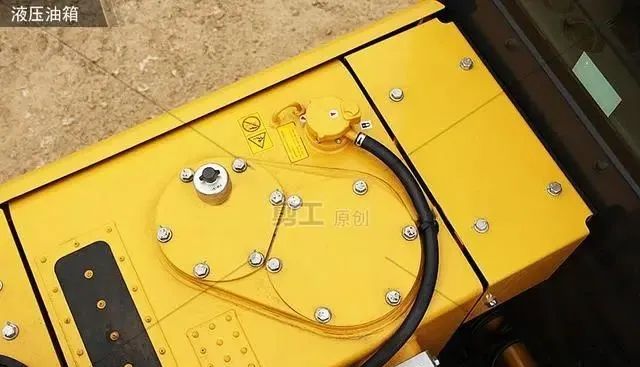How to deal with high temperature black bubbles in hydraulic oil?
September 21, 2022
The danger of air bubbles in hydraulic oil 1. Abnormal machine action: In simple terms, if there are air bubbles in the hydraulic oil, the first impact is the transmission efficiency. To put it more bluntly, the construction action of the whole machine will be abnormal! 2. Abnormal sound of the hydraulic system: If the operator can hear the abnormal sound of the large pump in the cab, which is different from the normal construction, it is very likely that the bubbles increase the vibration and noise generated by the system! 3. High temperature of hydraulic oil: Many machine owners have wondered why the sudden high temperature failure of hydraulic oil occurs at the end of the machine? In fact, the mess is the air bubbles swimming in the hydraulic oil! When these bubbles swim through the high-pressure area, they will be quickly compressed from the normal pressure state, resulting in a sudden increase in the local temperature. Over time, the oil will deteriorate under high temperature conditions, that is, our common hydraulic oil turns black!

How to check for hydraulic oil bubbles? Since the cause of the failure is air bubbles, we also understand the harm caused by air bubbles to the machine, so what we need to know immediately is how to quickly check and remove these air bubbles? 1. First check whether the oil level of the hydraulic oil tank is lower than the oil inlet of the variable double pump or the control oil pump. If the oil level of the fuel tank is low, then the air must be waiting for the opportunity to enter from the oil inlet, so at this time everyone should immediately add hydraulic oil to the standard oil level, and exhaust the air through the exhaust valve in time! 2. If the oil level is within the standard range, but there is still air in the oil, then consider the leakage of the seal. You can install an air pressure gauge on the top of the oil tank, and then inject 0.3~0.4MPa air pressure into the hydraulic oil tank. The same variable Observe the leak point at the pump inlet pipe, the pilot gear pump inlet pipe and the casings of the two pumps. 3. If there is an air leak point, then when the air pressure is injected, we can observe that there are air bubbles of different sizes discharged from the air leak. Find the air leak and solve it symptomatically according to different situations.

Abnormal increase in hydraulic oil temperature What is hydraulic oil high temperature? For excavators, generally when the hydraulic oil temperature is 50~80℃, the viscosity and wear resistance of the hydraulic oil are in the best state, and the working efficiency is the highest. When the hydraulic oil temperature exceeds 95°C, the efficiency of the excavator decreases, the action is inaccurate and slow, and the excavator cannot work in severe cases. To solve the high temperature of hydraulic oil, we can start from the aspects of hydraulic oil radiator, hydraulic system, hydraulic oil, and driver operation: Hydraulic radiator clogged The working environment of the excavator is relatively bad, sunny and rainy and muddy, and there are bugs in spring and summer. The periphery of the radiator of the hydraulic system is easily blocked, resulting in poor heat dissipation of the hydraulic system. Therefore, the hydraulic system radiator should be cleaned regularly, and a layer of dust net should be installed outside the radiator if possible. Inside the radiator, after long-term wear and hydraulic oil carbonization, some solid impurities will also be generated like the water tank. These impurities accumulate inside the diffuser, and in severe cases, the internal pipes will be completely blocked. Hydraulic system failure When the oil temperature is too high in the hydraulic system of the excavator, the back pressure valve and the bypass valve should be monitored for faults. If the bypass valve is normally open, or the back pressure valve is closed, the hydraulic oil does not pass through the hydraulic oil radiator. Cooling flows directly back to the hydraulic tank, causing the hydraulic oil to overheat. Unreasonable selection of hydraulic oil type Hydraulic oil with suitable viscosity can reduce friction loss. In summer, hydraulic oil with slightly higher viscosity should be selected to reduce internal leakage. In winter, hydraulic oil with a slightly lower viscosity should be used to reduce pressure loss. Different brands of hydraulic oil and different types of hydraulic oil of the same brand have different base oils and additives and are not compatible. After the hydraulic oil is mixed, the additives will react, causing the additives to fail and generate particles and foam, which will reduce the working efficiency and increase the wear of hydraulic components such as pumps, motors, and valves. Improper operation of the driver If the driver operates the excavator too violently and incoherently, the temperature of the hydraulic system will be too high. When the oil circuit and components in the hydraulic system work under high pressure for a long time, in addition to the power loss of the pump, motor, relief valve, and pipeline system, the power loss of the balance valve, buffer valve, single throttle valve, etc. is also very large, which will also cause High temperature hydraulic oil. When the hydraulic oil foam increases, the car owner takes it seriously and handles it in time. It is necessary to find the cause first, and do not blindly add Anti-foaming Agent. At the same time, in life, it is necessary to analyze the performance of oil products, such as the air release and anti-foaming properties of hydraulic oil. If such problems still occur, it is necessary to check the hydraulic oil indicators and the design of the oil tank.







